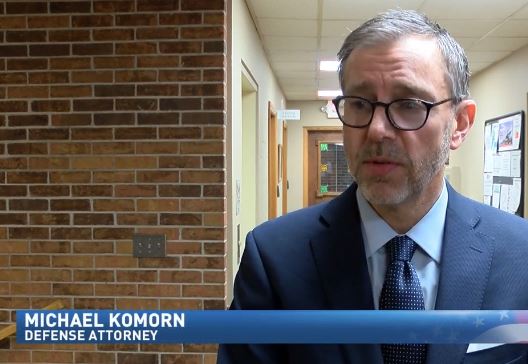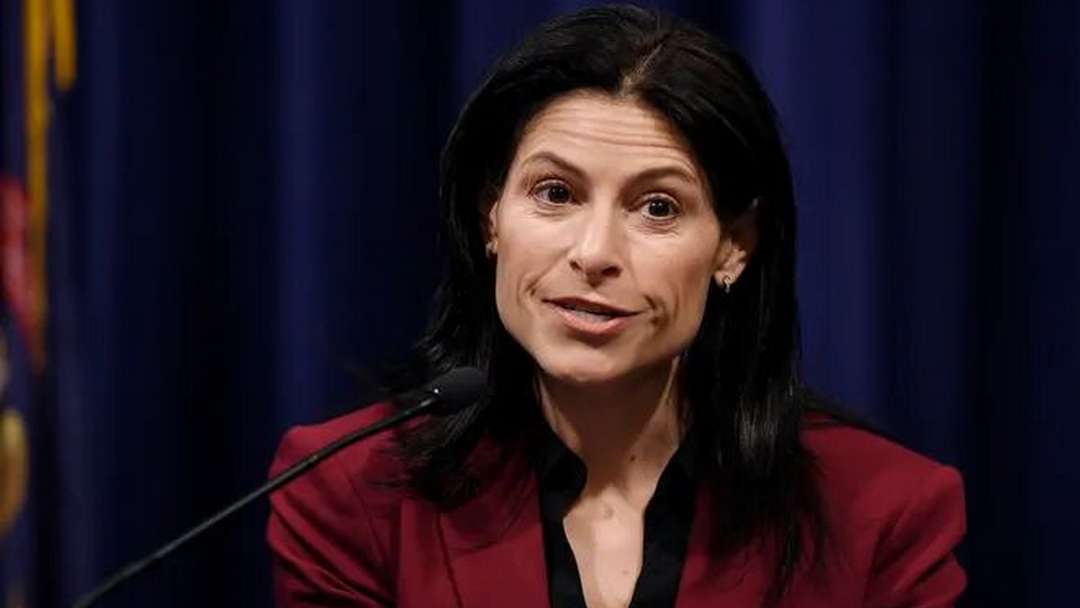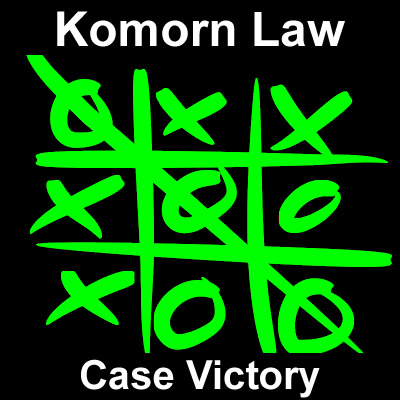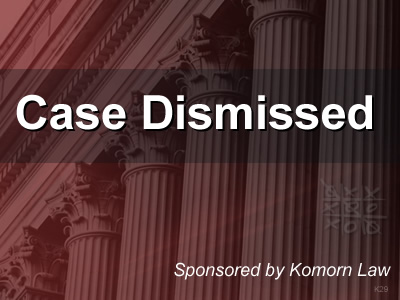
Client charged with Carrying a Concealed Weapon
Our client was charged with 5 year felony-carrying a concealed weapon.
Here’s the law they were charged with…
MCL750.227 Concealed weapons; carrying; penalty.
Sec. 227.
(1) A person shall not carry a dagger, dirk, stiletto, a double-edged nonfolding stabbing instrument of any length, or any other dangerous weapon, except a hunting knife adapted and carried as such, concealed on or about his or her person, or whether concealed or otherwise in any vehicle operated or occupied by the person, except in his or her dwelling house, place of business or on other land possessed by the person.
(2) A person shall not carry a pistol concealed on or about his or her person, or, whether concealed or otherwise, in a vehicle operated or occupied by the person, except in his or her dwelling house, place of business, or on other land possessed by the person, without a license to carry the pistol as provided by law and if licensed, shall not carry the pistol in a place or manner inconsistent with any restrictions upon such license.
(3) A person who violates this section is guilty of a felony, punishable by imprisonment for not more than 5 years, or by a fine of not more than $2,500.00.
Case Victory
Komorn Law PLLC, is proud to announce another victory and rare outcome in the broken criminal justice system.
Case Background
The allegations in this matter, arose out of a traffic stop by the Sherriff’s Department. It was not a surprise that the case had several issues related to the stop, arrest and seizure of both the accused and the evidence intended to be used at trial.
After raising these issues, and being prepared to proceed with a hearing to address these issues, the state capitulated – or – said another way, they made an offer that we couldn’t refuse.
Important Legal Lesson For Gun Owners
This case represents an important legal lesson for second amendment possessors and advocates.
If you possess a firearm and while transporting it in your vehicle are involved in a traffic stop by the police. You can be assured that the manner or method of that transport will be heavily scrutinized (see below for Michigan firearm transport in vehicle laws).
My client had expressed to me his top priorities for the outcome of this matter, and on that list was his right to preserve his right to possess and own a firearm ( in addition to avoidance of a felony conviction, jail, or similar encumbrances) .
This was based upon concerns for safety at or upon his residence.
The final result and outcome in this matter allowed him to achieve this goal and move on with his life without affecting his future while retaining all of his fundamental rights.
Case Outcome
Client was charged with 5 year felony-Carrying a Concealed Weapon. Client resolved matter by pleading to a reduced charge of an unregistered vehicle and sentenced to a fine. Any and all second amendment rights, including ccw / pistol permit retained and unaffected by this disposition.
Mission Accomplished!
Tap the number for an Attorney to fight for your freedom and your life > 248-357-2550 – Komorn Law
GUN LAWS in MICHIGAN
As with any law or anything you find on the internet, before you act, one should get their information directly from a government website and/or consult an attorney.
Michigan’s Gun Laws
Licenses are issued at the local level by county clerks. A permit to purchase, a background check and firearms registration are required to buy a handgun from a private individual.
Open carry is legal in Michigan with several restrictions. Open carry is allowed in more places than concealed carry as the restricted areas which can be found in MCL 28.425o apply to concealed carry.
28.425o Premises on which carrying concealed weapon or portable device that uses electro-muscular disruption technology prohibited; “premises” defined; exceptions to subsections (1) and (2); violation; penalties.
Concealed carry is legal in Michigan with a Concealed Pistol License (CPL) and for individuals at least 21 years old who have CCW licenses/permits issued with successful completion of a firearms training.
A Concealed Pistol License (CPL) is issued to residents only, with exceptions for active duty military stationed in Michigan as well as active duty military stationed outside of Michigan.
Each state in the USA has reciprocity laws. Michigan currently recognizes resident permits from all states, the District of Columbia and Puerto Rico (Note: Before traveling check each states laws for any changes or updates from an official state website).
Michigan is a Castle Doctrine (see Self Defense Act 780.972 below) state. A person may use deadly force, with no duty to retreat, if the individual has an honest and reasonable belief that such force is necessary to prevent the imminent death, great bodily harm or sexual assault to that person or to another individual. Any person who uses a gun legitimately in self-defense has immunity from civil liability.
The Law for a Common Question About Transporting a Firearm in Michigan
Transporting or possessing firearm in or upon motor vehicle
750.227d Transporting or possessing firearm in or upon motor vehicle or self-propelled vehicle designed for land travel; violation as misdemeanor; penalty.
Sec. 227d.
(1) Except as otherwise permitted by law, a person shall not transport or possess in or upon a motor vehicle or any self-propelled vehicle designed for land travel either of the following:
(a) A firearm, other than a pistol, unless the firearm is unloaded and is 1 or more of the following:
(i) Taken down.
(ii) Enclosed in a case.
(iii) Carried in the trunk of the vehicle.
(iv) Inaccessible from the interior of the vehicle.
(b) A pneumatic gun that expels a metallic BB or metallic pellet greater than .177 caliber unless the pneumatic gun is unloaded and is 1 or more of the following:
(i) Taken down.
(ii) Enclosed in a case.
(iii) Carried in the trunk of the vehicle.
(iv) Inaccessible from the interior of the vehicle.
(2) A person who violates this section is guilty of a misdemeanor punishable by imprisonment for not more than 90 days or a fine of not more than $100.00, or both.
THE LINKS to SECTIONS of CHAPTER 750
THE MICHIGAN PENAL CODE (EXCERPT)
Act 328 of 1931
Chapter XXXVII
FIREARMS
| Document | Type | Description |
| Section 750.222 | Section | Definitions. |
| Section 750.222a | Section | “Double-edged, nonfolding stabbing instrument” defined. |
| Section 750.223 | Section | Selling firearms and ammunition; violations; penalties; “licensed dealer” defined. |
| Section 750.224 | Section | Weapons; manufacture, sale, or possession as felony; violation as felony; penalty; exceptions; “muffler” or “silencer” defined. |
| Section 750.224a | Section | Portable device or weapon directing electrical current, impulse, wave, or beam; sale or possession prohibited; exceptions; use of electro-muscular disruption technology; violation; penalty; verification of identity and possession of license; prohibited use; definitions. |
| Section 750.224b | Section | Short-barreled shotgun or rifle; making, manufacturing, transferring, or possessing as felony; penalty; exceptions; short-barreled shotgun or rifle 26 inches or less; short-barreled shotgun or rifle greater than 26 inches; violation of subsection (5) as civil infraction; seizure and forfeiture; applicability of MCL 776.20 to subsection (3). |
| Section 750.224c | Section | Armor piercing ammunition; manufacture, distribution, sale, or use prohibited; exceptions; violation as felony; penalty; definitions; exemption of projectile or projectile core; rule. |
| Section 750.224d | Section | Self-defense spray or foam device. |
| Section 750.224e | Section | Conversion of semiautomatic firearm to fully automatic firearm; prohibited acts; penalty; applicability; “fully automatic firearm”, “licensed collector”, and “semiautomatic firearm” defined. |
| Section 750.224f | Section | Possession of firearm or distribution of ammunition by person convicted of felony; circumstances; penalty; applicability of section to expunged or set aside conviction; definitions. |
| Section 750.225 | Section | Repealed. 1993, Act 254, Imd. Eff. Nov. 29, 1993. |
| Section 750.226 | Section | Firearm or dangerous or deadly weapon or instrument; carrying with unlawful intent; violation as felony; penalty. |
| Section 750.226a | Section | Repealed. 2017, Act 96, Eff. Oct. 11, 2017. |
| Section 750.227 | Section | Concealed weapons; carrying; penalty. |
| Section 750.227a | Section | Pistols; unlawful possession by licensee. |
| Section 750.227b | Section | Carrying or possessing firearm when committing or attempting to commit felony; carrying or possessing pneumatic gun; exception; “law enforcement officer” defined. |
| Section 750.227c | Section | Transporting or possessing loaded firearm in or upon vehicle propelled by mechanical means; violation as misdemeanor; penalty. |
| Section 750.227d | Section | Transporting or possessing firearm in or upon motor vehicle or self-propelled vehicle designed for land travel; violation as misdemeanor; penalty. |
| Section 750.227f | Section | Committing or attempting to commit crime involving violent act or threat of violent act against another person while wearing body armor as felony; penalty; consecutive term of imprisonment; exception; definitions. |
| Section 750.227g | Section | Body armor; purchase, ownership, possession, or use by convicted felon; prohibition; issuance of written permission; violation as felony; definitions. |
| Section 750.228 | Section | Ownership of pistol greater than 26 inches in length; conditions; election to have firearm not considered as pistol. |
| Section 750.229 | Section | Pistols accepted in pawn, by second-hand dealer or junk dealer. |
| Section 750.230 | Section | Firearms; altering, removing, or obliterating marks of identity; presumption. |
| Section 750.231 | Section | MCL 750.224, 750.224a, 750.224b, 750.224d, 750.227, 750.227c, and 750.227d inapplicable to certain persons and organizations. |
| Section 750.231a | Section | Exceptions to MCL 750.227(2); “antique firearm” defined. |
| Section 750.231b | Section | Sale and safety inspection; persons exempt. |
| Section 750.231c | Section | “Aircraft,” “approved signaling device,” and “vessel” defined; sections inapplicable to approved signaling device; sale, purchase, possession, or use of approved signaling device; violation as misdemeanor; penalties. |
| Section 750.232 | Section | Repealed. 2017, Act 95, Eff. Oct. 11, 2017. |
| Section 750.232a | Section | Obtaining pistol in violation of MCL 28.422; intentionally making material false statement on application for license to purchase pistol; using or attempting to use false identification or identification of another person to purchase firearm; penalties. |
| Section 750.233 | Section | Pointing or aiming firearm at another person; misdemeanor; penalty; exception; “peace officer defined.” |
| Section 750.234 | Section | Firearm; discharge; intentionally aimed without malice; misdemeanor; penalty; exception; “peace officer” defined. |
| Section 750.234a | Section | Intentionally discharging firearm from motor vehicle, snowmobile, or off-road vehicle as crime; penalty; exceptions; other violation; consecutive terms; self-defense; “peace officer” defined. |
| Section 750.234b | Section | Intentionally discharging firearm at dwelling or potentially occupied structure as felony; penalty; exceptions; other violation; consecutive terms; definitions. |
| Section 750.234c | Section | Intentionally discharging firearm at emergency or law enforcement vehicle as felony; penalty; “emergency or law enforcement vehicle” defined. |
| Section 750.234d | Section | Possession of firearm on certain premises prohibited; applicability; violation as misdemeanor; penalty. |
| Section 750.234e | Section | Brandishing firearm in public; applicability; violation as misdemeanor; penalty. |
| Section 750.234f | Section | Possession of firearm by person less than 18 years of age; exceptions; violation as misdemeanor; penalty. |
| Section 750.235 | Section | Maiming or injuring person by discharging firearm; intentionally aimed without malice; exception; “peace officer” defined. |
| Section 750.235a | Section | Parent of minor guilty of misdemeanor; conditions; penalty; defense; definitions. |
| Section 750.235b | Section | Threatening to commit violence with firearm, explosive, or other dangerous weapon against students or employees on school property; specific intent or overt act; violation arising out of same transaction; definitions. |
| Section 750.236 | Section | Spring gun, trap or device; setting. |
| Section 750.236a | Section | Computer-assisted shooting; prohibited acts; definitions. |
| Section 750.236b | Section | Computer-assisted shooting; prohibited conduct; definitions. |
| Section 750.236c | Section | Violation of MCL 750.236a or 750.236b; penalty; forfeiture. |
| Section 750.237 | Section | Liquor or controlled substance; possession or use of firearm by person under influence; violation; penalty; chemical analysis. |
| Section 750.237a | Section | Individual engaging in proscribed conduct in weapon free school zone; violation; penalties; definitions. |
| Section 750.238 | Section | Search warrant. |
| Section 750.239 | Section | Forfeiture of weapons; disposal; immunity from civil liability. |
| Section 750.239a | Section | Disposition of seized weapon; immunity from civil liability; “law enforcement agency” defined. |
Act 372 of 1927
AN ACT to regulate and license the selling, purchasing, possessing, and carrying of certain firearms, gas ejecting devices, and electro-muscular disruption devices; to prohibit the buying, selling, or carrying of certain firearms, gas ejecting devices, and electro-muscular disruption devices without a license or other authorization; to provide for the forfeiture of firearms and electro-muscular disruption devices under certain circumstances; to provide for penalties and remedies; to provide immunity from civil liability under certain circumstances; to prescribe the powers and duties of certain state and local agencies; to prohibit certain conduct against individuals who apply for or receive a license to carry a concealed pistol; to make appropriations; to prescribe certain conditions for the appropriations; and to repeal all acts and parts of acts inconsistent with this act.
History: 1927, Act 372, Eff. Sept. 5, 1927 ;– Am. 1929, Act 206, Imd. Eff. May 20, 1929 ;– Am. 1931, Act 333, Imd. Eff. June 16, 1931 ;– Am. 1980, Act 345, Eff. Mar. 31, 1981 ;– Am. 1990, Act 320, Eff. Mar. 28, 1991 ;– Am. 2000, Act 265, Imd. Eff. June 29, 2000 ;– Am. 2000, Act 381, Eff. July 1, 2001 ;– Am. 2012, Act 123, Eff. Aug. 6, 2012
Popular Name: CCW
Popular Name: Concealed Weapons
Popular Name: CPL
Popular Name: Right to Carry
Popular Name: Shall Issue
© 2020 Legislative Council, State of Michigan
The People of the State of Michigan enact:
| Document | Type | Description |
| Section 28.421 | Section | Definitions; lawful owning, possessing, carrying, or transporting of pistol greater than 26 inches in length; conditions; firearm not considered as pistol; election. |
| Section 28.421a | Section | Concealed pistol licenses; issuance; creation of standardized system. |
| Section 28.421b | Section | Firearms records; confidentiality; disclosure prohibited; exceptions; violation as civil infraction; fine. |
| Section 28.422 | Section | License to purchase, carry, possess, or transport pistol; issuance; qualifications; applications; sale of pistol; exemptions; transfer of ownership to heir or devisee; nonresident; active duty status; forging application as felony; implementation during business hours. |
| Section 28.422a | Section | Individuals not required to obtain license; completion of record by seller; duties of purchaser; noncompliance as state civil infraction; penalty; entering information into pistol entry database; obtaining copy of information; exemption; material false statement as felony; penalty; rules; verification; definitions. |
| Section 28.422b | Section | Entry of order or disposition into law enforcement information network; written notice; person subject of order; request to amend inaccuracy; notice of grant or denial of request; hearing; entry of personal protection order; service required. |
| Section 28.423 | Section | Repealed. 2000, Act 381, Eff. July 1, 2001. |
| Section 28.424 | Section | Restoration of rights by circuit court; petition; fee; determination; order; circumstances. |
| Section 28.425 | Section | Concealed pistol application kits. |
| Section 28.425a | Section | Validity and duration of concealed pistol license issued before December 1, 2015; duties of county clerk; verification by state police; applicant issued personal protection order; emergency license; requirements; notice of statutory disqualification; surrender of emergency license; compilation of firearms laws by legislative service bureau; distribution; statement. |
| Section 28.425b | Section | License application; form; contents; material false statement as felony; record; fee; verification of requirements; determination; circumstances for issuance; information of court order or conviction; fingerprints; issuance or denial; individual moving to different county; replacement license; suspension or revocation of license; furnishing copy of application to individual; list of certified instructors; delivery of license by first-class mail; liability for civil damages; voluntary surrender of license; definitions. |
| Section 28.425c | Section | License; form; contents; authorized conduct; photograph. |
| Section 28.425d | Section | Denial or failure to issue notice of statutory disqualification, receipt, or license; appeal. |
| Section 28.425e | Section | Database; annual report. |
| Section 28.425f | Section | Concealed pistol license; possession; disclosure to peace officer; violation; fine; notice to department; suspension or revocation by county clerk; entry into law enforcement information network; seizure by peace officer; forfeiture; “peace officer” defined. |
| Section 28.425g | Section | Pistol or portable device that uses electro-muscular disruption technology; subject to seizure and forfeiture; exception. |
| Section 28.425h | Section | Expiration of license issued under former law; renewal license. |
| Section 28.425i | Section | Instruction or training; liability. |
| Section 28.425j | Section | Pistol training or safety program; conditions; prohibited conduct; violation of subsection (3) as felony; certificate of completion. |
| Section 28.425k | Section | Acceptance of license as implied consent to submit to chemical analysis of breath, blood, or urine; collection and testing; refusal to take chemical test; definitions. |
| Section 28.425l | Section | License; validity; duration; renewal; waiver of educational requirements; fingerprints. |
| Section 28.425m | Section | Repealed. 2015, Act 3, Eff. June 2, 2015. |
| Section 28.425n | Section | Other license or permit; limitations by employer prohibited. |
| Section 28.425o | Section | Premises on which carrying concealed weapon or portable device that uses electro-muscular disruption technology prohibited; “premises” defined; exceptions to subsections (1) and (2); violation; penalties. |
| Section 28.425v | Section | Concealed weapon enforcement fund; creation; disposition of funds; lapse; expenditures. |
| Section 28.425w | Section | Appropriation; amount; purpose; total state spending; appropriations and expenditures subject to MCL 18.1101 to 18.1594. |
| Section 28.425x | Section | Concealed pistol licensing fund. |
| Section 28.426 | Section | Issuance of license; conditions. |
| Section 28.426a | Section | Repealed. 2015, Act 3, Eff. June 2, 2015. |
| Section 28.427 | Section | Concealed weapons licenses; expiration. |
| Section 28.428 | Section | Suspension, revocation, or reinstatement of license; notice; surrender of license; order or amended order; entry into law enforcement information network; effect of suspension or revocation order; failure to receive notice. |
| Section 28.429 | Section | Repealed. 2008, Act 195, Eff. Jan. 7, 2009. |
| Section 28.429a | Section | Repealed. 2012, Act 377, Imd. Eff. Dec. 18, 2012. |
| Section 28.429b | Section | Repealed. 2012, Act 377, Imd. Eff. Dec. 18, 2012. |
| Section 28.429c | Section | Repealed. 2012, Act 377, Imd. Eff. Dec. 18, 2012. |
| Section 28.429d | Section | Repealed. 2000, Act 381, Eff. July 1, 2001. |
| Section 28.430 | Section | Theft of firearm; report required; failure to report theft as civil violation; penalty. |
| Section 28.431 | Section | Repealed. 2012, Act 377, Imd. Eff. Dec. 18, 2012. |
| Section 28.432 | Section | Inapplicability of MCL 28.422; amendatory act as “Janet Kukuk act”. |
| Section 28.432a | Section | Exceptions. |
| Section 28.432b | Section | Signaling devices to which MCL 28.422 inapplicable. |
| Section 28.432c | Section | Repealed. 2000, Act 381, Eff. July 1, 2001. |
| Section 28.433 | Section | Unlawful possession of weapon; complaint, search warrant, seizure. |
| Section 28.434 | Section | Unlawful possession; weapon forfeited to state; disposal; immunity. |
| Section 28.434a | Section | Disposition of firearm; immunity from civil liability; “law enforcement agency” defined. |
| Section 28.435 | Section | Sale of firearms by federally licensed firearms dealer; sale of trigger lock or secured container; exceptions; brochure or pamphlet; statement of compliance; notice of liability; action by political subdivision against firearm or ammunition producer prohibited; rights of state attorney general; exceptions; effect of subsections (9) through (11); violation; penalties; definitions. |
750.246 Mutilation.
Sec. 246.
Mutilation of flag, etc.—Any person who shall publicly mutilate, deface, defile, defy, trample upon or by word or act cast contempt upon any such flag, standard, color, ensign, coat-of-arms or shield, is guilty of a misdemeanor.
Komorn Law Social Media
Recent Posts
- Traffic Laws FAQs – Cellphones
- Traffic Laws FAQs – Equipment & Lighting Violations
- Traffic Laws FAQs – Tinted Windows
- New rule mandates time and a half pay for lower paid employees
- Whitmer Signs Bills for Health Services and Criminal Justice
Tag Cloud
2nd amendment 2020 2021 BMMR cannabis CBD corruption corruption. prosecutors detroit dispensary Driving DUI evidence expungement federal forfeiture ginnifer hency gun rights hemp komornlaw Komorn Law Victories lara law enforcement abuse laws legal Legalization marijuana Medical Marijuana Michigan michigan laws michigan news MMFLA MMMA MMMA Regulations MRA news police politics Recreational Cannabis science shattuck supreme court usa news Vote Your Rights
DISCLAIMER
This post may contain re-posted content, opinions, comments, ads, third party posts, outdated information, posts from disgruntled persons, posts from those with agendas and general internet BS. Therefore…Before you believe anything on the internet regarding anything do your research on Official Government and State Sites, Call the Michigan State Police, Check the State Attorney General Website and Consult an Attorney.




